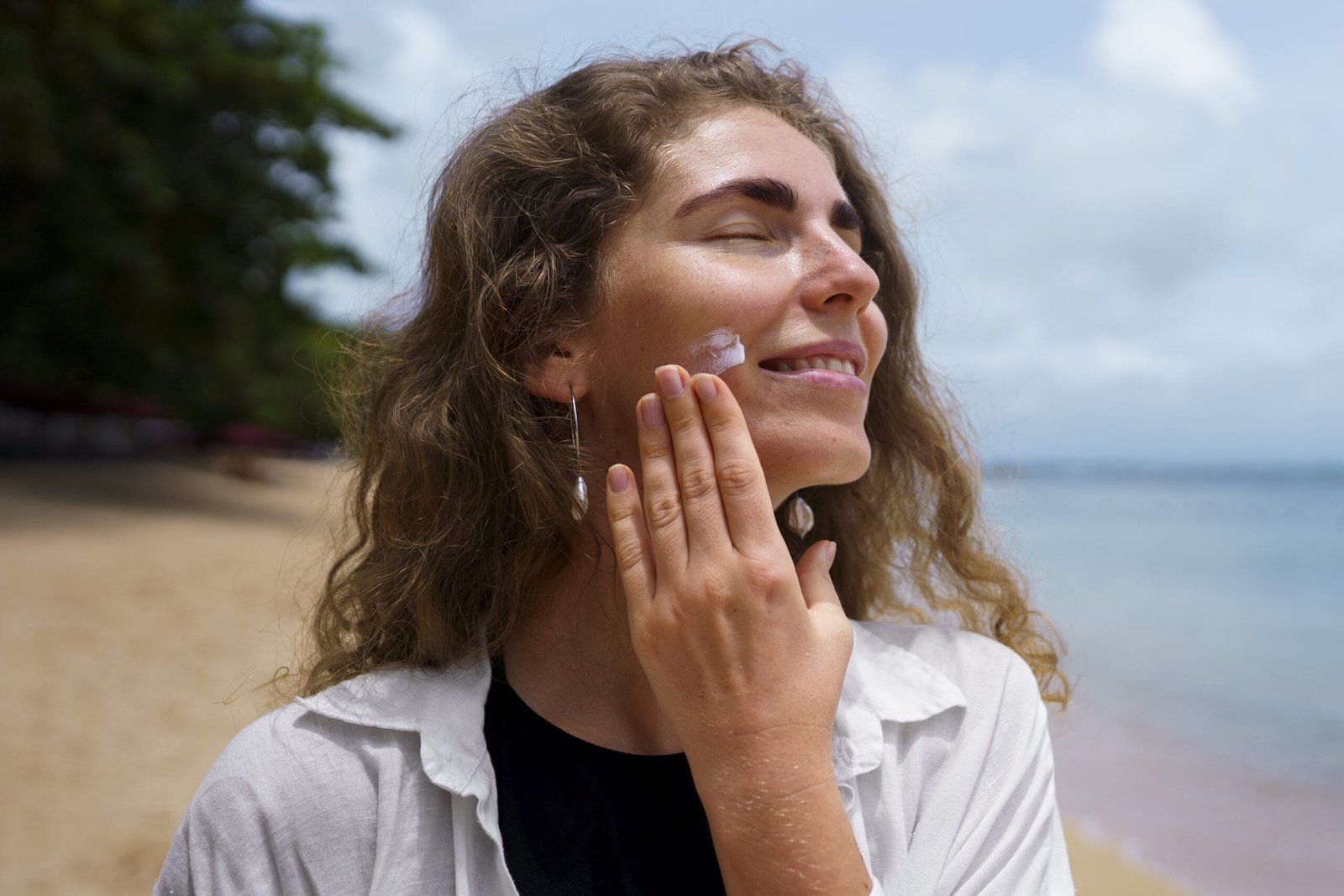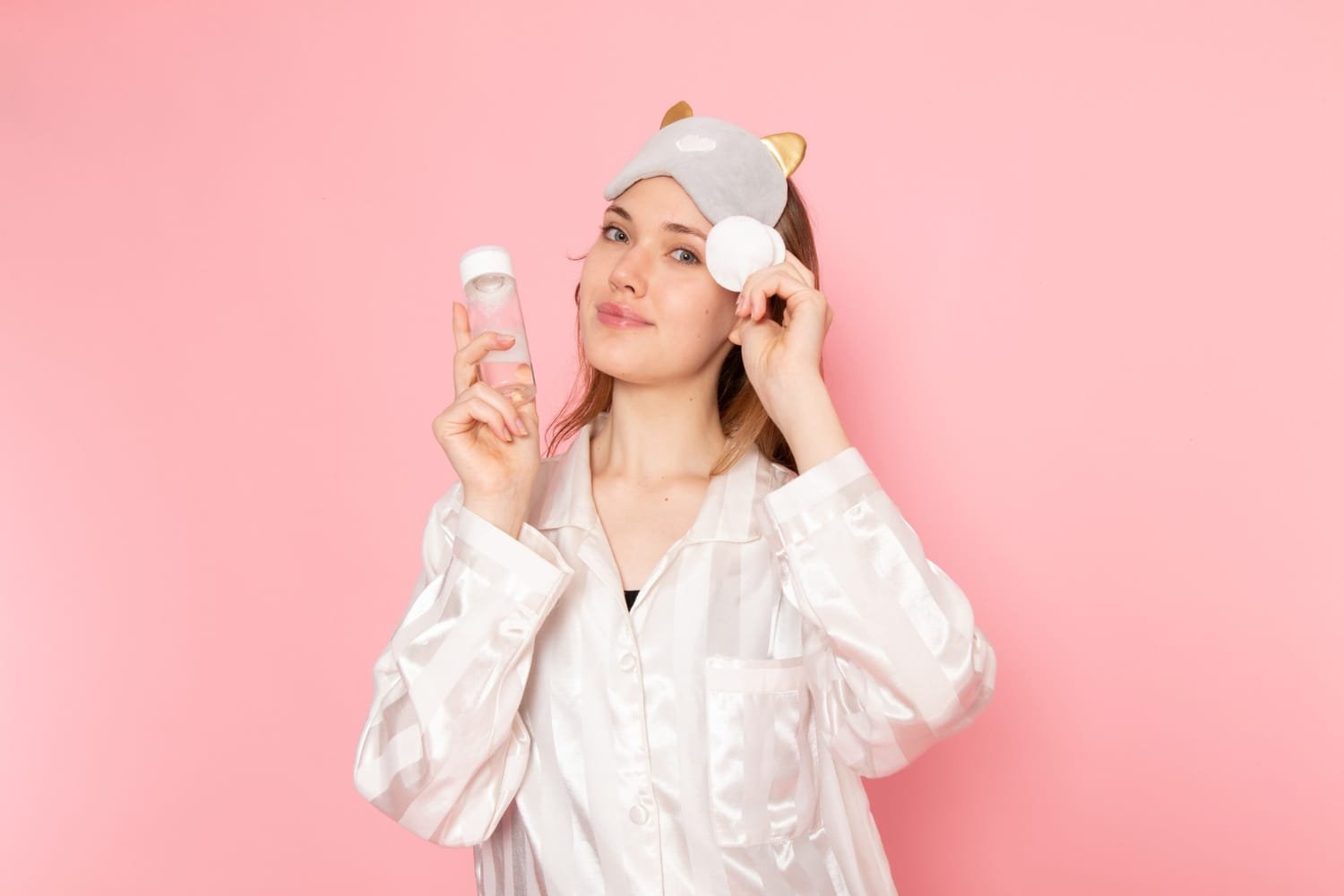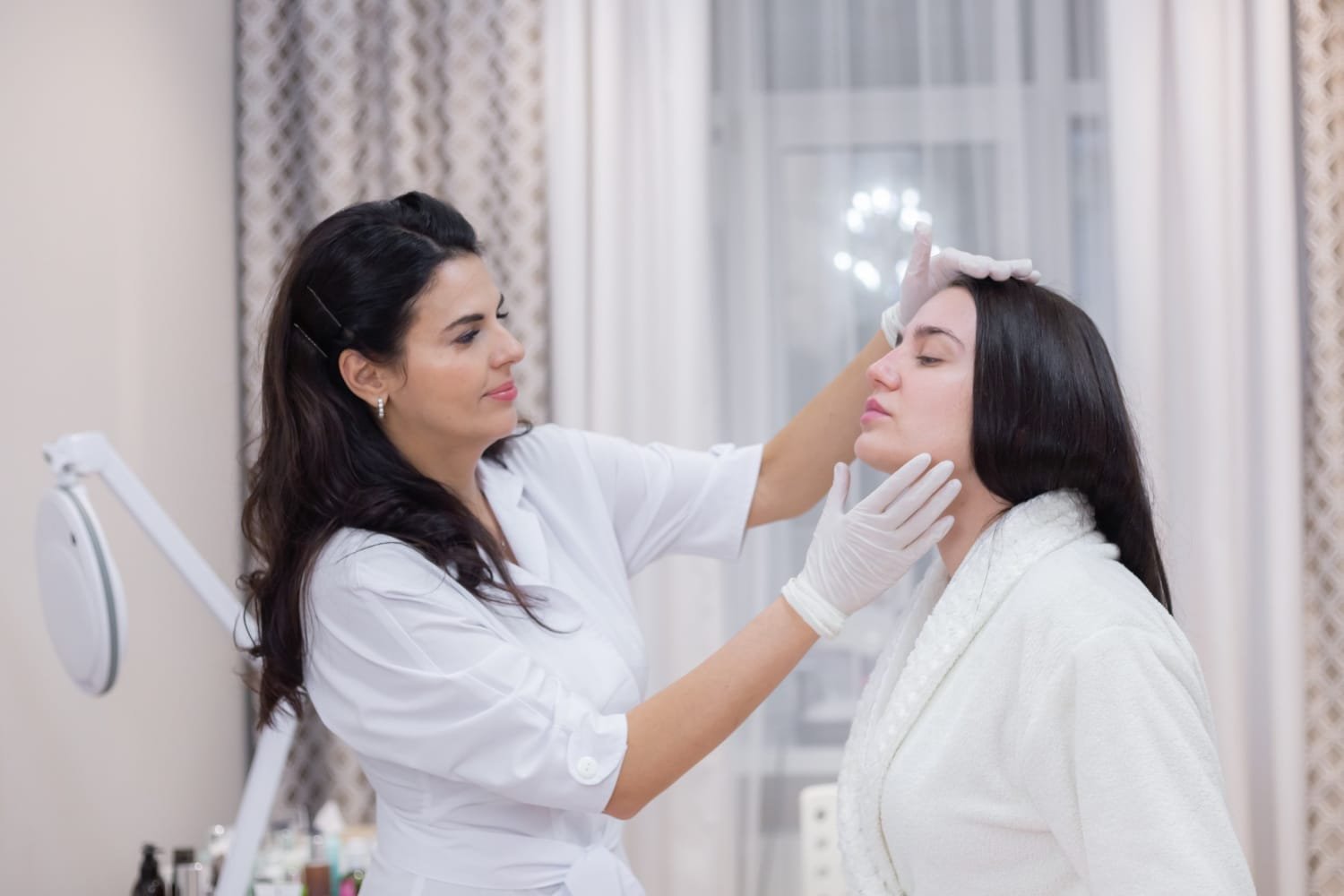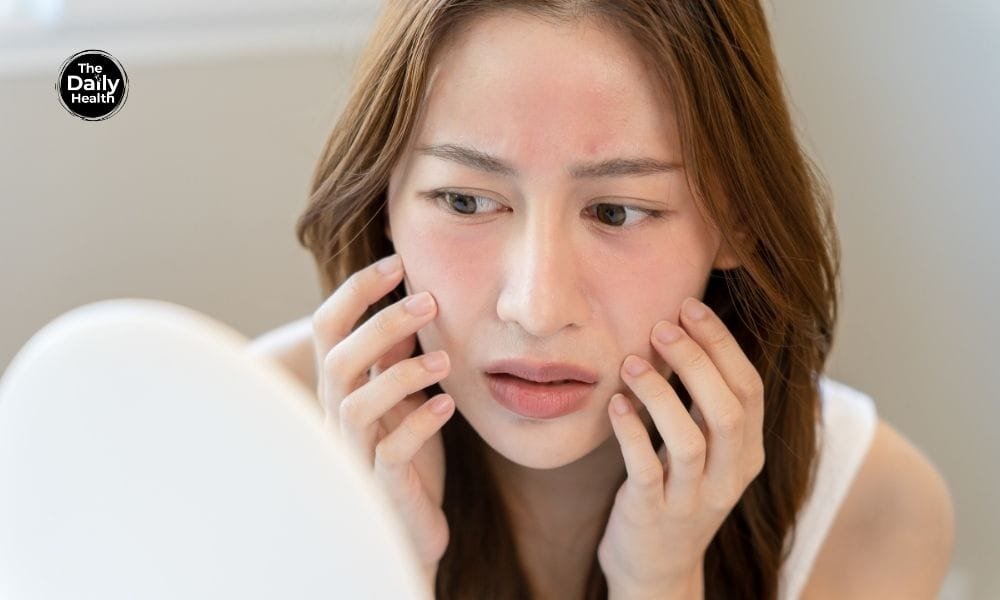Skincare Routine For Sensitive Skin: Sensitive skin can be tricky to manage. If you often feel a burning sensation, redness, itching, or irritation after using skincare products or being out in the sun, chances are you have sensitive skin. People with sensitive skin react more quickly to external elements like pollution, temperature changes, harsh ingredients, or even strong fragrances.

While it may seem hard to deal with, sensitive skin can be healthy and glowing if taken care of properly. In this article, we will explore everything you need to know about sensitive skin, including the best tips, daily care routine, ingredients to avoid, and how to manage flare-ups. Whether you are already dealing with sensitive skin or think you might have it, this guide is for you.
What is Sensitive Skin?
Sensitive skin is not a medical condition, but a skin type that gets irritated easily. It may respond negatively to certain products, fabrics, climates, or even emotional stress. You may notice:
-
Redness
-
Burning or stinging
-
Itching
-
Dry patches
-
Rashes or bumps
-
Peeling
These symptoms can come and go depending on what your skin is exposed to. Sensitive skin can also be linked to other skin issues like eczema, rosacea, or allergies.
Common Causes of Sensitive Skin
Understanding what triggers your skin sensitivity is the first step in managing it. Here are some common causes:
1. Harsh Skincare Products: Soaps, cleansers, or creams with strong chemicals, alcohol, or added fragrances can damage the skin barrier.
2. Weather Changes: Extremely hot or cold weather, wind, or sun can cause skin irritation.
3. Pollution: Dust, smoke, and other pollutants in the air can clog pores and irritate sensitive skin.
4. Stress and Hormones: Mental stress or hormonal imbalances can trigger flare-ups in sensitive skin.
5. Over-Exfoliation: Scrubbing your face too hard or using exfoliants too often can harm your skin and make it more sensitive.
How to Know If You Have Sensitive Skin

If you’re unsure whether you have sensitive skin, here are a few signs:
-
Your skin reacts quickly to new products.
-
You often feel tightness or dryness after washing your face.
-
Redness and small bumps appear easily, especially after exposure to the sun.
-
Fragranced products cause burning or stinging.
-
You have a history of eczema, rosacea, or allergies.
If you relate to these points, your skin is likely sensitive. A dermatologist can confirm it with a patch test or skin analysis.
Daily Skincare Routine for Sensitive Skin
Sensitive skin needs a gentle and simple routine. Using fewer, but well-chosen products can make a huge difference. Here’s a basic skincare routine to follow:
1. Gentle Cleansing

Start your morning and night routine by washing your face with a mild, fragrance-free cleanser. Avoid using soaps or face washes that contain alcohol or sulfates, as these ingredients can strip away your skin’s natural moisture and lead to irritation. Always use lukewarm water instead of hot water, and gently pat your skin dry with a soft towel without rubbing. This gentle cleansing helps remove dirt and oil without damaging the skin’s protective barrier, keeping your face clean, calm, and refreshed.
2. Hydrating Moisturiser

After cleansing, your skin needs hydration to stay soft and protected. Apply a gentle, non-comedogenic moisturiser with soothing ingredients like hyaluronic acid, glycerin, ceramides, or aloe vera. Choose creams or lotions that are labelled “for sensitive skin” and avoid anything that contains fragrance, dyes, or strong acids. A good moisturiser not only locks in moisture but also strengthens your skin barrier and prevents dryness, flakiness, or inflammation throughout the day.
3. Broad-Spectrum Sunscreen

Sunscreen is essential for everyone, especially those with sensitive skin. To avoid irritation, go for a physical or mineral sunscreen with zinc oxide or titanium dioxide as these ingredients are gentler than chemical sunscreens. Use SPF 30 or higher and apply it every day, even when staying indoors. A suitable sunscreen protects your skin from harmful UV rays, reducing the chances of redness, sunburn, and long-term damage like dark spots or premature ageing.
4. Night Routine – Repair and Calm

At night, follow the same routine of gentle cleansing and moisturising. If your skin feels irritated, you can use a calming serum or treatment with ingredients like niacinamide, chamomile, or calendula to reduce redness and sensitivity. Avoid active ingredients like retinol or strong acids unless prescribed by a dermatologist. Nighttime care gives your skin the chance to heal and repair itself while you sleep, helping you wake up with softer, calmer skin.
Ingredients to Avoid for Sensitive Skin
All products are for everyone. Sensitive skin needs extra caution. Here are some ingredients to avoid:
-
Fragrance or Perfume: It’s one of the top causes of irritation.
-
Alcohol: Dries out the skin and weakens the barrier.
-
Parabens and Sulfates: Common in soaps and shampoos, they strip natural oils.
-
Essential Oils (strong ones like peppermint or citrus): Can cause allergic reactions.
-
Artificial Dyes: Found in makeup and creams, may trigger sensitivity.
-
Harsh Exfoliants: Avoid rough scrubs or peels unless advised by a doctor.
Always read product labels and patch-test new products on your wrist or behind your ear before applying them to your face.
When to See a Dermatologist

You should consult a skin doctor if:
-
Your skin is constantly red, itchy, or peeling.
-
You have flare-ups that don’t improve with home care.
-
You develop new allergies or rashes.
-
You want to use active ingredients like retinol safely.
A dermatologist can help you choose the right products and create a personalised routine.
Final Thoughts:
Caring for sensitive skin doesn’t have to be stressful. With the right products, a simple routine, and a little patience, you can manage your skin beautifully. Always listen to your skin—if something causes irritation, stop using it. Less is more when it comes to sensitive skin. Stick to gentle, fragrance-free products, protect your skin from the sun, and avoid overloading your face with treatments.
Every person’s skin is unique, so give yourself time to discover what works best for you. With consistent care and smart choices, your sensitive skin can become calm, clear, and radiant.
Images: Freepik
Top 10 Amazing Health Benefits of Flaxseeds You Should Know!
